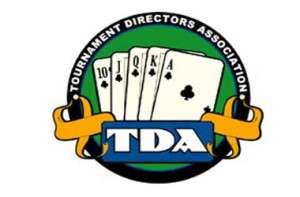Is it Time for a Single Set of Rules for Poker?
 In the past few days you may have noticed a lot a internet discussion about a ruling late in Event #25 of this Year’s WSOP. Mike Matusow won a pivotal hand with less than three full tables left to put him in prime spot to win another bracelet. Mike, being Mike, celebrated his victory in the hand in his usual crowd pleasing, loud and expressive way. He didn’t swear, he moved away from the table, and no-one seemed to be offended. No-one that is apart from highly experienced WSOP Floorman Dave Lamb. After Mike had raked all his chips, he gave the “Mouth” a one round penalty, apparently for his “excessive celebration!” As rulings are not published after the fact, we may never know exactly why he was penalised.
In the past few days you may have noticed a lot a internet discussion about a ruling late in Event #25 of this Year’s WSOP. Mike Matusow won a pivotal hand with less than three full tables left to put him in prime spot to win another bracelet. Mike, being Mike, celebrated his victory in the hand in his usual crowd pleasing, loud and expressive way. He didn’t swear, he moved away from the table, and no-one seemed to be offended. No-one that is apart from highly experienced WSOP Floorman Dave Lamb. After Mike had raked all his chips, he gave the “Mouth” a one round penalty, apparently for his “excessive celebration!” As rulings are not published after the fact, we may never know exactly why he was penalised.
This penalty sent Mike on tilt, and he busted from the event in pretty short order after his return to the table. Following his exit, the stars started to come out of the woodwork in, mostly in support of Matusow. Daniel Negreanu weighed into the fray with a blog on the subject, and a large discussion started on 2+2 about the ins and outs of the decision. The discussion had a hard time deciding what Mike had actually been penalised for, whether he was warned before hand, and if the penalty was warranted. The information just wasn’t clear, it also appears that the “excessive celebration” rule has been removed from the WSOP rule book.
I’m not going to add my thoughts on the actual ruling in the Rio that affected Mike so badly. What I will look at is, why do we have so many versions of the “official” rules for poker?
We have the almighty Tournament Director’s Association (TDA) who hold a yearly conference to look at the rules on the books and make changes. Along with that set of rules for poker, we also have the Federation Internationale de Poker Association (FiDPA) set (which the TDA rules were based on), and the WSOP, WPT and EPT have their own slightly different versions of the rule book. There are probably several more versions of the rules out there, but what purpose does having so many sets of the rules have?
To my mind, having so many, and sometimes conflicting, sets of rules really penalises the more casual player. I might be lucky enough to satellite into an EPT Main Event for a small amount online, and if I enter a WPT event the following week, I could be in a situation where floor people could give two completely different rulings for the same situation. Professionals, who play for a living, tend to know the differences in each tour’s rules as they play several events under each tour’s banner, and are aware that each tour actually has different rule sets.
The recreational player however is much more in the hands of the tournament director and his or her team of floor people. They are the final arbiter of justice in the case of the relevant poker tournaments, but we have all seen poor decisions being made by various floor people. The TDA and FiDPA both have the goal to have their rulebooks used across every event played worldwide, and I’d love to see one of them be successful. Rather than having to read multiple new rule books each year (yes, I do actually do this) I could just read 1 set of rules, and if tours wanted to implement something different for their event, all they need to do is announce the rule change to players before the event.
This isn’t actually my idea. I had a long talk to Marcel Luske at an EPT a few years ago about this, and I ended up agreeing with the Dutch founder of the FiDPA. He, and Michelle Lau came up with their set of rules, and the ethos that recreational poker players shouldn’t be put at a disadvantage at the table. Their main position to make that happen is a single set of rules across all promoters, where every player is advised of the local changes before they start to play. This single rule set would standardise the industry, and only be a benefit to players. It would remove the home advantage that might allow a player to angleshoot, it would make discussions about rulings a lot easier to resolve.
This just leaves the people applying the rules. How do we ensure that Tournament Directors and Floor People apply the rules in the same way? I’d really like to see all floor decisions published after an event, in the same way as soccer referees have to justify red and yellow cards. After an event, each decision would have to be evaluated as being in line with the rules, and feedback provided to the persona who made that decision. Why this isn’t required at a regulatory level is actually a little surprising to me, considering how much influence a single decision can have on an event.
I’d like to see a movement to a more organised system controlling the rules of poker, like the MCC in cricket, or FIFA in football. One body, responsible for maintaining the rules and regulations, ensuring that players around the world are not put in a position where they are penalised without being aware of why.
While implementing these suggestions might not have stopped Mike Matusow from getting a penalty last week, but it would certainly have made the following discussion a lot shorter.






















COMMENTS